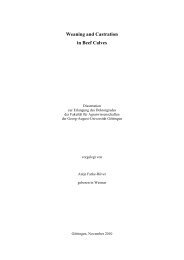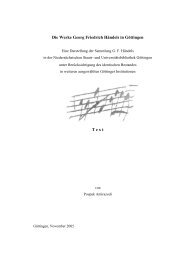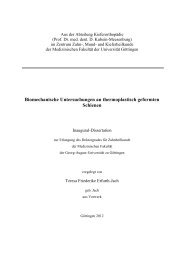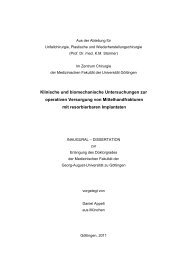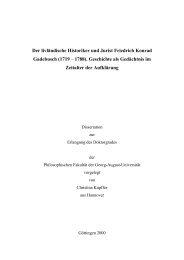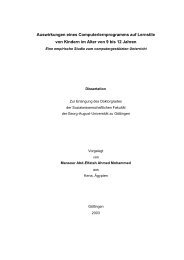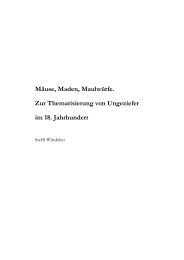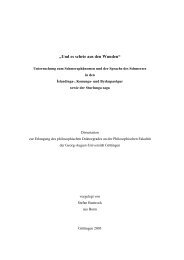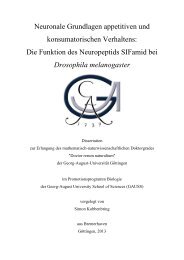Kausales Denken, Bayes-Netze und die Markov-Bedingung
Kausales Denken, Bayes-Netze und die Markov-Bedingung
Kausales Denken, Bayes-Netze und die Markov-Bedingung
Erfolgreiche ePaper selbst erstellen
Machen Sie aus Ihren PDF Publikationen ein blätterbares Flipbook mit unserer einzigartigen Google optimierten e-Paper Software.
156<br />
Cheng, P. W. & Novick, L. R. (1990). A probabilistic contrast model of causal induction.<br />
Journal of Personality and Social Psychology, 58 (4), 545–567.<br />
Cheng, P. W., Novick, L. R., Liljeholm, M. & Ford, C. (2007). Explaining four psychological<br />
asymmetries in causal reasoning: Implications of causal assumption<br />
for coherence. In M. O'Rourke (Ed.), Topics in contemporary<br />
philosophy, Vol. 4: Explanation and causation (S. 1–32). London: MIT<br />
Press.<br />
Collins, D. J. & Shanks, D. R. (2006). Conformity to the power PC theory of causal<br />
induction depends on the type of probe question. The Quarterly Journal<br />
of Experimental Psychology, 59 (2), 225–232.<br />
Danks, D. (2003). Equilibria of the Rescorla-Wagner model. Journal of Mathematical<br />
Psychology, 47, 109–121.<br />
Danks, D. (2005). The supposed competition between theories of human causal<br />
inference. Philosophical Psychology, 18 (2), 259–272.<br />
Danks, D. (2007). Theory unification and graphical models in human categorization.<br />
In A. Gopnik & L. Schulz (Eds.), Causal learning: Psychology, philosophy,<br />
and computation (S. 173–189). Oxford: Oxford University Press.<br />
Danks, D. (2008). Rational analyses, instrumentalism, and implementations. In N.<br />
Chater & M. Oaksford (Eds.), The probabilistic mind: Prospects for <strong>Bayes</strong>ian<br />
cognitive science (S. 59–75). New York: Oxford University Press.<br />
Dickinson, A. (2001). Causal learning: An associative analysis. Quarterly Journal of<br />
Experimental Psychology, 54B, 3–25.<br />
Gelman, A., Carlin, J. B., Stern, H. S. & Rubin, D. B. (2004). <strong>Bayes</strong>ian data analysis<br />
(2 nd edition). London: Chapman & Hall.<br />
Gigerenzer, G. & Hoffrage, U. (1995). How to improve <strong>Bayes</strong>ian reasoning without<br />
instruction: Frequency formats. Psychological Review, 102, 684–704.<br />
Gigerenzer, G. & Hoffrage, U. (1999). Overcoming difficulties in <strong>Bayes</strong>ian reasoning:<br />
A reply to Lewis and Keren (1999) and Mellers and McGraw (1999).<br />
Psychological Review, 106, 425–430.<br />
Glymour, C. (1998). Psychological and normative theories of causal power and<br />
the probability of causes. In G. Cooper & S. Moral (Eds.), Uncertainty in<br />
Artificial Intelligence (S. 166–172). San Francisco, CA: Morgan Kaufmann.



